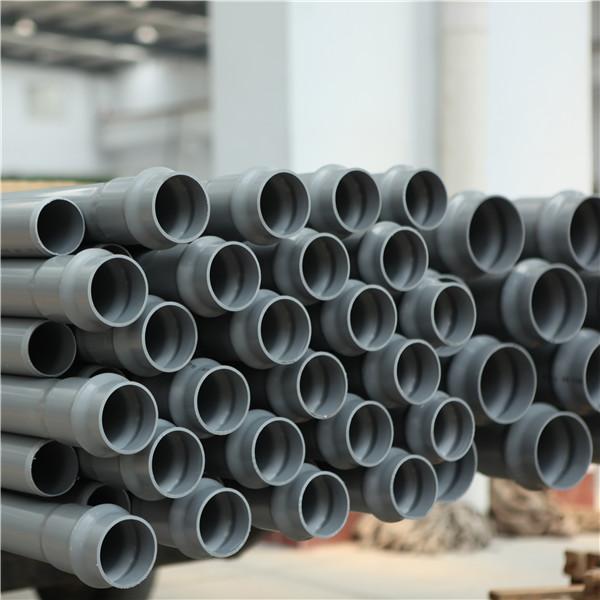Jul . 26, 2024 13:23 Back to list
Understanding the Benefits and Applications of PVC-M Pipes in Modern Plumbing Systems
Understanding PVC-M Pipes Features, Benefits, and Applications
Polyvinyl Chloride Modified (PVC-M) pipes are an innovation in the field of plumbing and civil engineering, addressing the need for a resilient, durable, and cost-effective piping solution. As the world becomes more focused on sustainable infrastructure, PVC-M pipes are emerging as a popular choice across various industries due to their unique properties and advantages.
Composition and Characteristics
PVC-M pipes are manufactured from a modified form of polyvinyl chloride, a synthetic plastic polymer. The modification process enhances the physical properties of standard PVC, providing a combination of flexibility, impact resistance, and enhanced tensile strength. This versatility makes PVC-M pipes suitable for a wide range of applications, particularly in environments that experience dynamic loading conditions and varying pressures.
One of the most notable characteristics of PVC-M pipes is their improved toughness compared to conventional PVC pipes. This modification allows them to withstand higher internal pressures and external forces, making them ideal for use in pressure applications, such as water supply and irrigation systems. Additionally, PVC-M pipes exhibit excellent resistance to chemical corrosion, ensuring longevity and reliability even in aggressive environments.
Benefits of PVC-M Pipes
1. Durability and Longevity PVC-M pipes boast an extended lifespan, often exceeding 50 years under proper installation and maintenance conditions. This durability translates to lower replacement costs over time, presenting a cost-effective solution for municipalities and companies.
2. Lightweight and Easy Installation Compared to traditional materials like metal or concrete, PVC-M pipes are significantly lighter, making transport and installation easier and less labor-intensive. Their lightweight nature reduces the strain on installation teams and allows for quicker project completions.
pvc-m pipe

3. Fewer Maintenance Requirements The inert nature of PVC means that the pipes are resistant to biological growth, such as algae and mold, which can be a significant concern in water supply systems. This resistance results in fewer maintenance needs, saving time and resources for operators.
4. Environmental Considerations PVC-M pipes are recyclable, aligning with modern sustainable practices. Utilizing recycled materials in their production minimizes environmental impact, making them a greener alternative in piping solutions.
5. Cost-Effectiveness Initial costs for PVC-M pipes are generally lower than those of traditional materials. Coupled with their long lifespan and low maintenance needs, they offer a financially viable option for various applications.
Applications of PVC-M Pipes
PVC-M pipes are used in multiple sectors, including
- Water Supply Ideal for potable water distribution, PVC-M pipes ensure safe and reliable delivery, withstanding variable pressures in municipal systems. - Irrigation Systems Due to their flexibility and durability, these pipes are extensively used in agricultural applications, promoting efficient water usage and crop irrigation. - Sewer Systems PVC-M's resistance to chemical corrosion makes it an excellent choice for sewage and wastewater management, ensuring that systems can operate effectively in harsh conditions. - Industrial Applications From chemical transport to cooling systems, PVC-M’s chemical resistance allows for diverse industrial applications where reliability is crucial.
Conclusion
In conclusion, PVC-M pipes represent a significant advancement in pipeline technology, balancing durability, affordability, and environmental responsibility. With their impressive range of applications and benefits, it is no surprise that they have become a go-to choice in the construction and civil engineering industries. As infrastructure needs evolve, the role of PVC-M pipes in sustainable development will become increasingly prominent, showcasing their vital contribution to contemporary and future projects.
-
Durable PP Rigid Sheet: Lightweight, Chemical Resistant Solutions
NewsAug.21,2025
-
PVC Grey Sheet for Extraction: Chemical Resistant & Durable
NewsAug.19,2025
-
Durable PVC Pipe Fittings for Plumbing & Irrigation Needs
NewsAug.18,2025
-
HDPE Steel Belt Reinforced Spiral Corrugated Pipe | High Strength
NewsAug.17,2025
-
HDPE Pipe Fittings: Durable, Leak-Proof Solutions
NewsAug.16,2025
-
Premium CPVC Sheet: High-Temp & Chemical Resistant Solutions
NewsAug.15,2025

